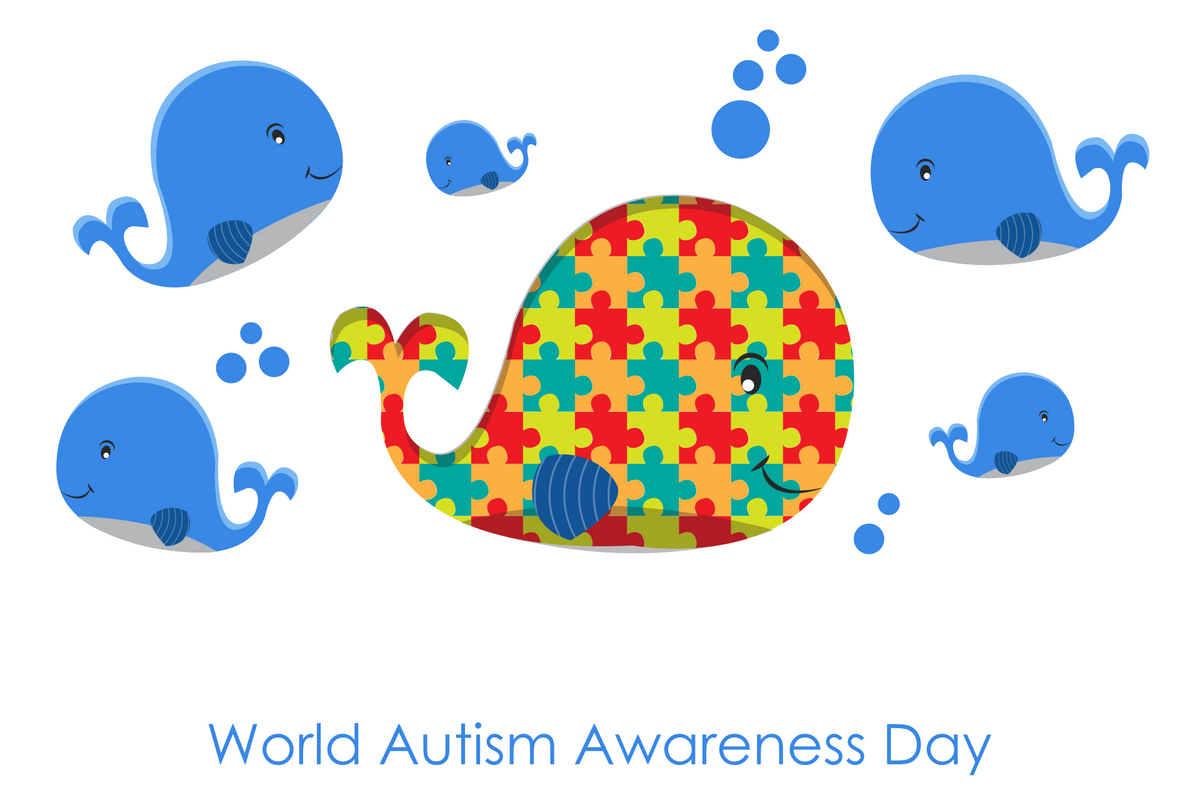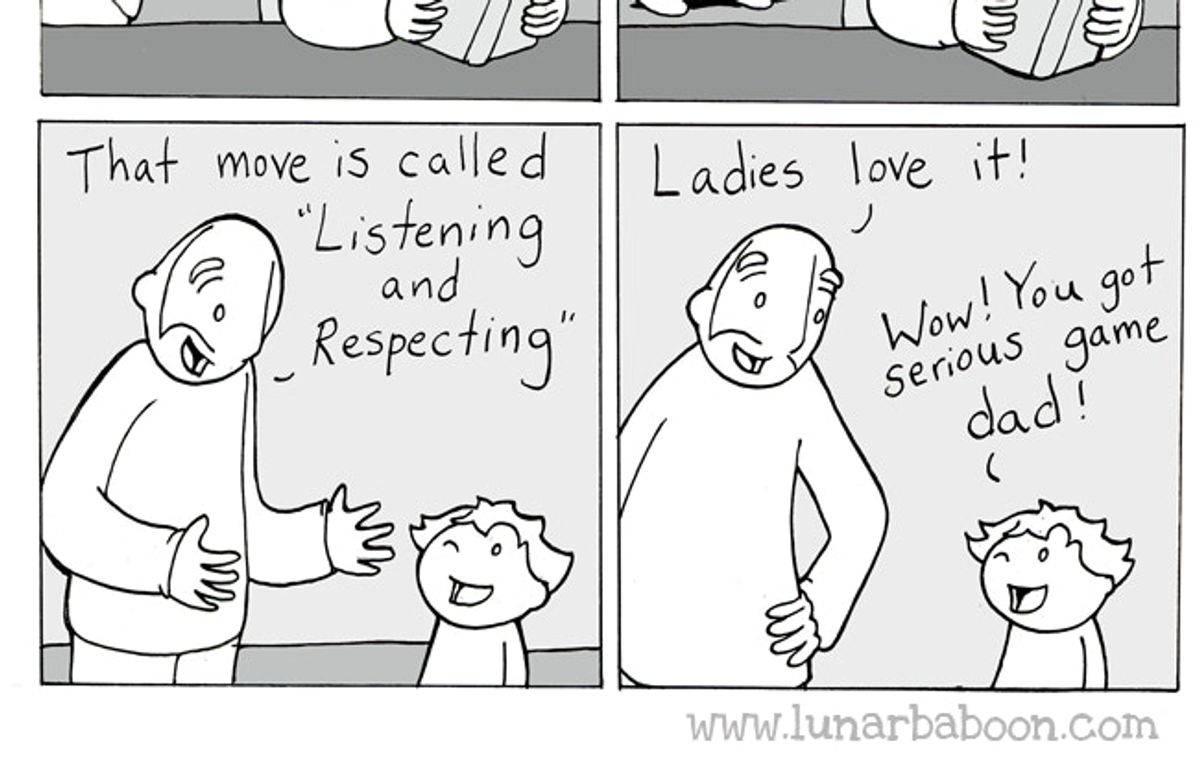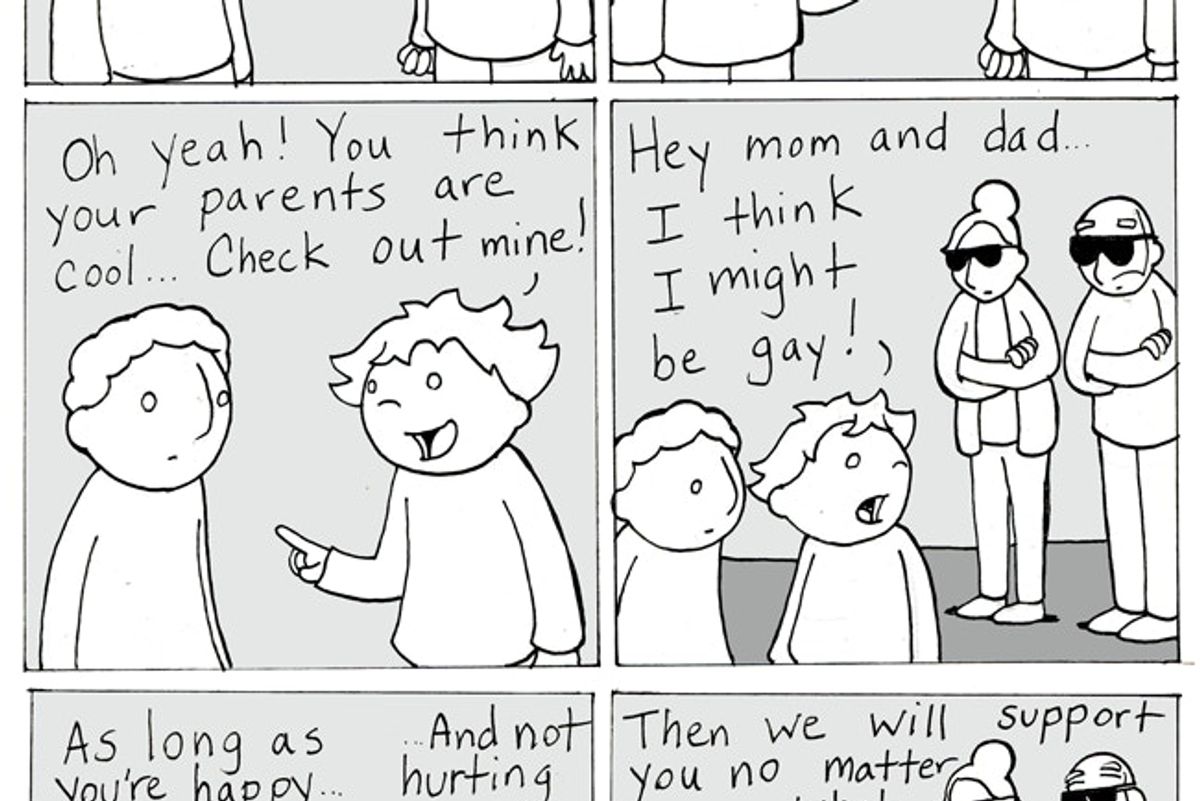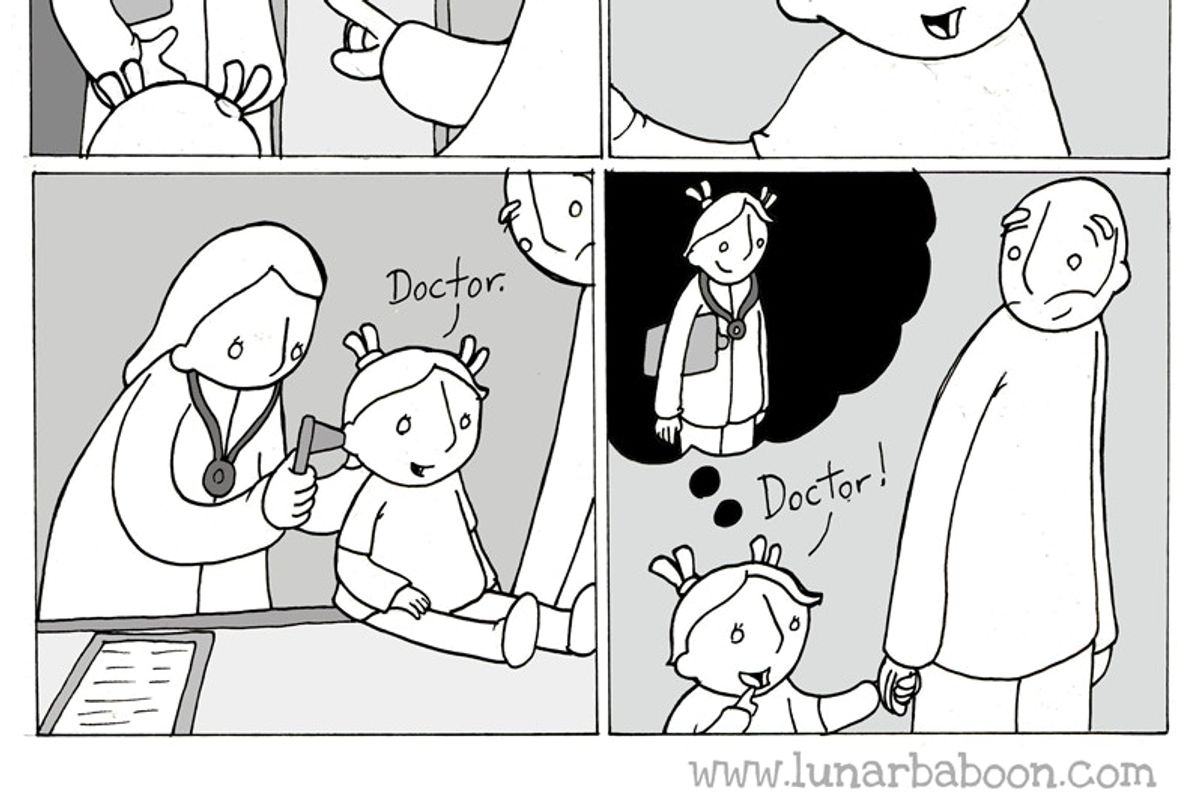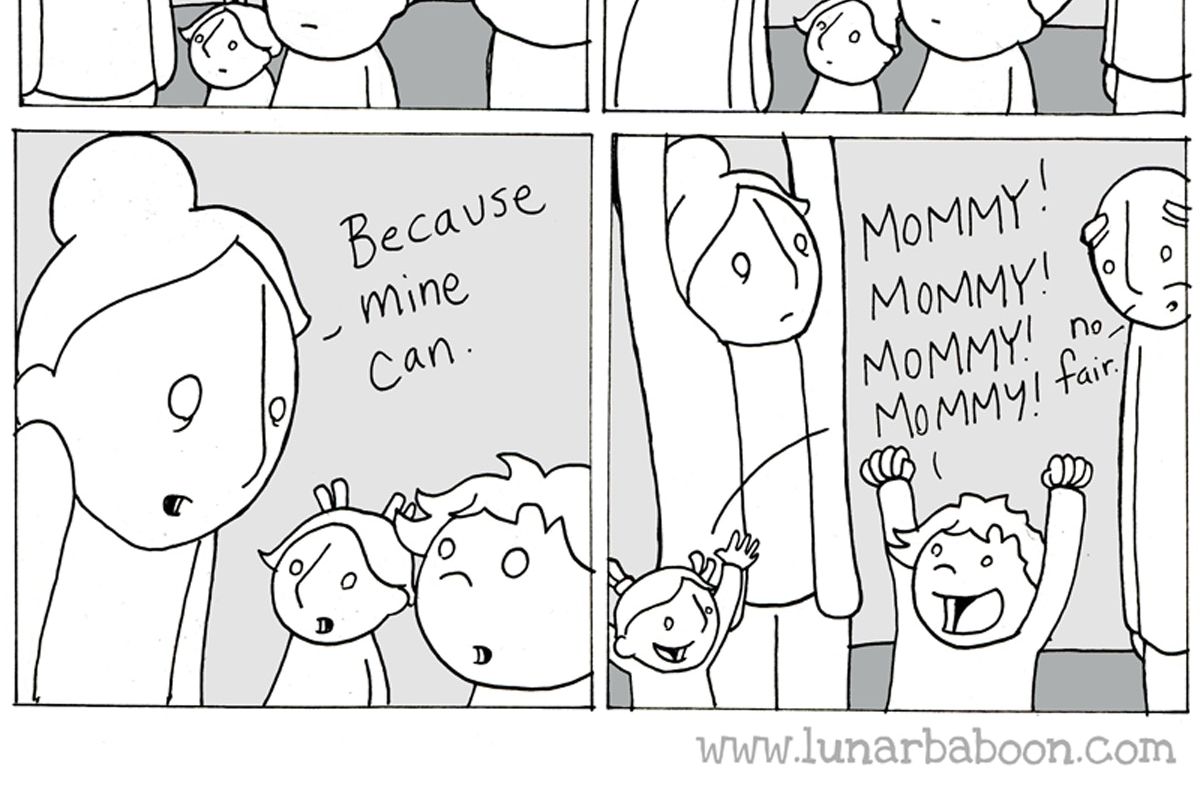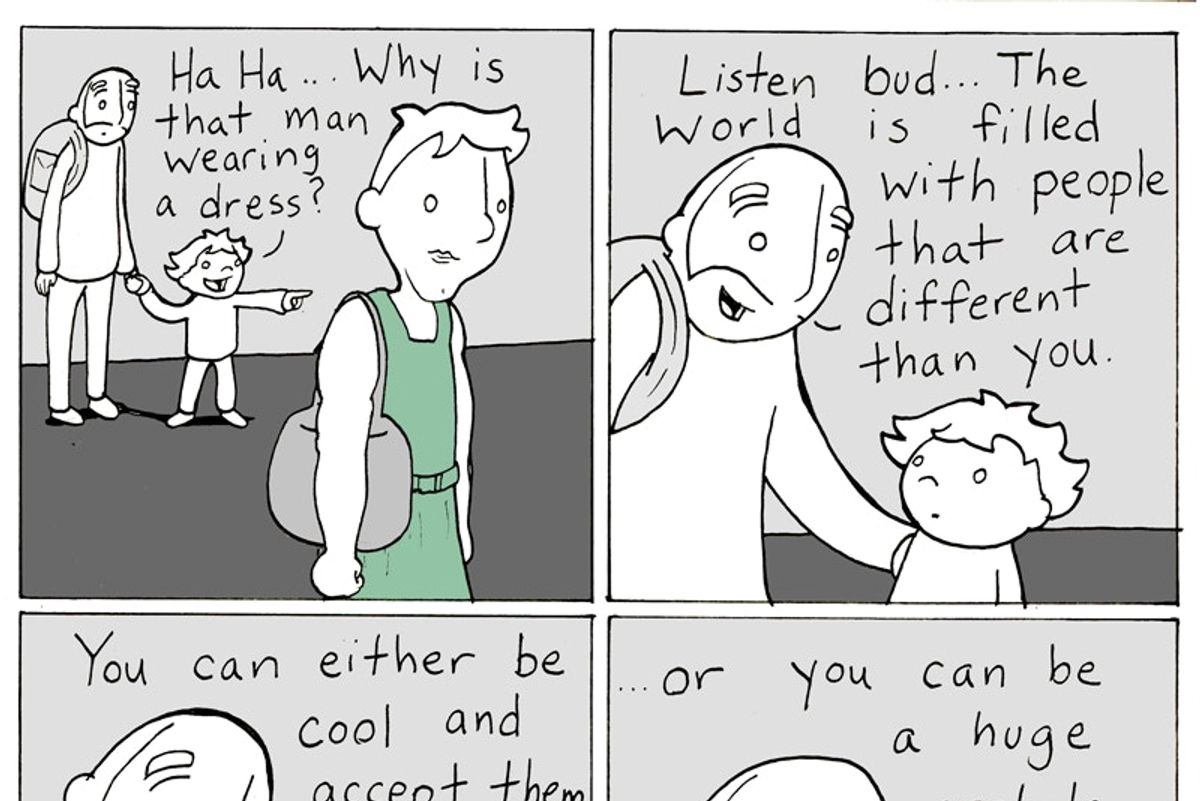China just changed its one-child policy. It was necessary, but it might not make a huge difference.
China just announced that it's doing away with its one-child policy, finally allowing families to have two children.
The BBC reported that "the decision to allow families to have two children was designed 'to improve the balanced development of population' and to deal with an aging population, according to the statement from the Community Party's Central Committee."
This was a long time coming, but it won't erase or immediately ease the many problems that have resulted from the policy. Here's the backstory.
In 1979, the Chinese government introduced a one-child policy.
Photo by WANG ZHAO/AFP/Getty Images.
It's exactly what it sounds like — each family in China was only permitted to have one child. The government created the one-child policy to slow China's huge and growing population, which had reached nearly 1 billion people at the time.
There were some exceptions that the Washington Post shared after translating them. One was allowing for a second child if the firstborn was disabled or unable to work. Another was allowing for a second child if both parents were only children themselves. Later, the policy was adjusted to allow for a second child if just one of the parents was an only child. But for most typical Chinese families, one child was all they could (legally) have.
While the reason for the policy made sense in theory, there were many problems in practice.
The policy likely accomplished its goal of slowing population growth in China. In fact, the BBC reports that the one-child policy may have prevented an estimated 400 million births.
But that doesn't mean it was an all-around win. When couples violated the policy, they faced consequences — "from fines and the loss of employment to forced abortions," the BBC stated.
And the policy also meant that the population has now become uneven, with 115 boys born for every 100 girls (compared to 103 boys for every 100 girls worldwide).
The gender imbalance has made it more difficult for men to find women as partners in China.
A Chinese woman is sitting behind an advertisement "to attract other parents while looking for a partner for her child at a marriage market in Shanghai." Photo by Johannes Eisele/AFP/Getty Images.
Reuters reported that the National Health and Family Planning Commission in China made a statement on its website back in January, noting, "Our country has the most serious gender imbalance that is most prolonged and affecting the most number of people." In 2014, it was reported that there were 32 million more boys than girls under the age of 20 in China.
Sadly, the gender imbalance likely resulted from black market ultrasounds to determine the sex of the baby a woman was carrying, and subsequent abortions when the baby was a girl and the family wanted a boy.
Fewer births means there are fewer people to care for the aging population.
An elderly resident at a care center. Photo by Aaron Tam/AFP/Getty Images.
In China, children traditionally care for their aging parents. But not only are there fewer children to physically and financially care for aging parents now, there are also fewer working-age people paying into social security programs to care for elderly folks.
"Undocumented" children have a harder time receiving an education or finding work.
Children at school in a rural village in China. Photo by Guang Niu/Getty Images.
The children of families who violated the one-child policy often weren't registered, meaning that it's much for difficult for them to get an education or a job as they get older.
And of course the one-child policy led to an explosion of international adoptions.
Orphaned children in Beijing. Photo by Kevin Frayer/Getty Images.
More than 100,000 children have been adopted from China by Westerners since the early-1990s because of the one-child policy. For years, the majority of children adopted were girls. And as time went on, children placed for adoption increasingly had disabilities. Limiting families to just one child means that many felt forced to abandon their children for reasons of gender or disability, which is terrible situation.
This week's change in policy will do little to address many of the problems the one-child policy created. But it's also a long-overdue move that needed to happen.
Stuart Gietel-Basten, associate professor of social policy at the University of Oxford, wrote, "[T]he change is really a very pragmatic response to an unpopular policy that no longer made any sense. And much like the introduction of the policy in 1978, it will have little impact on the country's population level."
Regardless of the narrative, this change is good and hopefully future generations won't face the hardships that many people in China are currently experiencing.
As a parent of two children myself (both through international adoption), I admittedly struggle to feel completely positive about an initiative that is decidedly restrictive, although obviously less so than the previous one. It still might result in parents ending pregnancies simply because of gender, placing children for adoption because of disability, or having to hide children who are third-born (or greater) — among many other things. But the bottom line is that it's a push in the right direction for a complicated policy. I'm curious to learn how this changes life in practice, not just in theory, for Chinese families.


